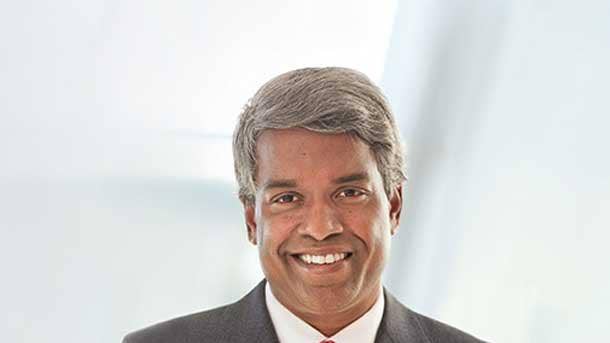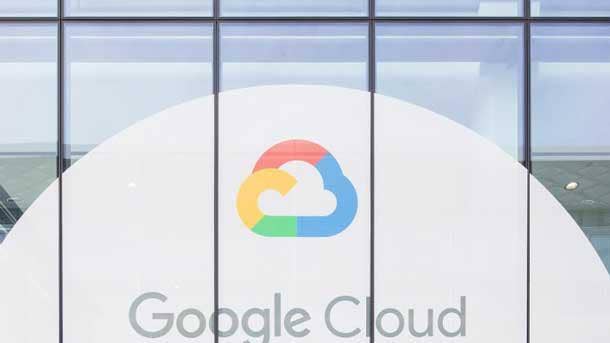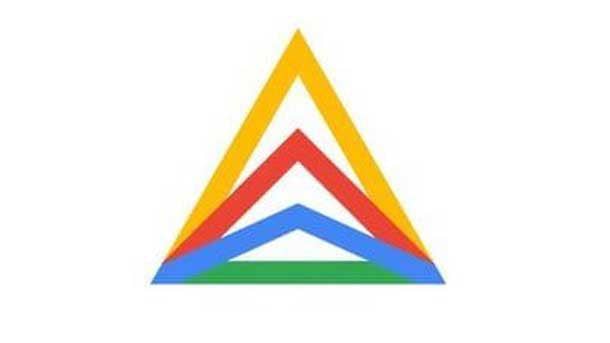Deloitte: Google Will Be Its ‘Fastest Growing Billion-Dollar Business’
‘It's really a category of one in terms of what it is as a company, and all the different things that they're involved in,’ said Tom Galizia, Deloitte Consulting’s San Francisco-based senior technology partner and lead commercial partner for its Alphabet/Google alliance.

On The Record With Tom Galizia
Deloitte Consulting earned Google Cloud’s Global Services Partner of the Year award at the cloud provider’s Next ’19 conference earlier this month in San Francisco, where both companies announced they would collaborate on next-generation solutions targeting the healthcare, financial services and retail industries.
A Google Premier Partner, Deloitte Consulting also was revealed as a systems integrator launch partner for Anthos, Google Cloud’s new multi- and hybrid-cloud offering that allows customers to build and manage applications across their on-premises data centers and on Google Cloud and third-party clouds, including Amazon Web Services and Microsoft Azure.
CRN talked to Tom Galizia, Deloitte Consulting’s San Francisco-based senior technology partner and lead commercial partner for its Alphabet/Google alliance, about the company’s relationship with Alphabet/Google, which he said would constitute its “fastest billion-dollar services business.”
Galizia has worked for Deloitte Consulting for 27 years. A little less than 2-1/2 years ago, chairwoman and CEO Janet Foutty asked him to “do what we could do amplify and scale the relationship across all dimensions with Alphabet/Google,” he said.
“I ran Deloitte’s tech strategy, architecture and infrastructure business, which was inclusive of cloud for the five years running from 2011 through the end of 2016, and it had 1,100 people in it,” Galizia said. “As I was coming out of that job, I basically went to her and to our industry leader and said, ‘I can either pick up the five hobbies I've neglected for the last, at the time, 46 years of my life, or you give me something exciting to dig into.’”
Galizia saw Alphabet/Google as a “high-potential, high-beta space.”
“It's really a category of one in terms of what it is as a company, and all the different things that they're involved in,” he said.
“We decided from the very early innings that we were going to put a strategy in place that had, at the core of it, the priority (of driving) several billions of dollars’ worth of revenue for Google and for Alphabet more broadly, to become relevant,” Galizia said. “We had no interest in being a bit player. We wanted to be, and we strive to remain, Google's preferred global services partner. Certainly, in Google Cloud, we've achieved that the last couple of years as their global (systems integrators) partner of the year. We're now after hashtag three-peat.”
“We’re doing a very formal alliance around GCP (Google Cloud Platform), we have a very formal alliance and market success across Google Marketing Platform,” Galizia said. “We've got significant momentum around their AI (artificial intelligence)/machine learning (ML) capabilities. We've done really good work with their Maps business around smart cities and a whole host of other industry and horizontal solutions.”

Where is Google Cloud winning versus its competitors?
Google Cloud is in a transition with the departure of former chief executive Diane Greene, who put in the foundational technology elements of what was required for Google Cloud, and new CEO Thomas Kurian (pictured), who's bringing in additional industry breadth, depth and an enterprise focus – with “triple-A quality, focus and intention,” according to Galizia.
“I think that transition is a good one, it was the right time for that,” he said. “In terms of where they are winning, they are differentiated in a couple different places. They're differentiating around their security capabilities, in that they are the only public cloud that can really, truly be end to end. They don't really have to use service providers around the world to connect to customers, they can do it on their own network. They certainly have the broadest and deepest network available to be able to do that end to end. They are the most committed to open, and that’s the most recent announcement around Anthos -- one of the absolute highlights coming out of Next, where now an enterprise can encode or write once and deploy anywhere on-prem or in any of the public clouds, inclusive of Google Cloud. They are competing and winning on analytics. Certainly, everyone says they have AI/ML, but the horsepower and capabilities of BigQuery are literally second to none, and the performance testing has been validated by third parties. I am really bullish on what BigQuery can do in terms of ingestion -- ingesting vast majority of data sets and transforming it. They clearly have always owned and dominated in the cloud-native space -- the likes of Snap and others. But the reality is, as they really focus on enterprise, (Kurian) has brought a lot of clarity around priority workloads, priority industries, industry solutions.”
“What I feel most excited about is Alphabet is a series of nested holding companies,” Galizia said. “When you look at Google Cloud, Google Cloud consists of G Suite, it consists of Maps and consists of Apigee from an API perspective. It’s lot of their AI/ML capabilities, and it's their platform capabilities. That's embedded within Google, which includes the world's leading marketing stack, it includes YouTube and includes Android. You go to Alphabet, and you've got Verily (Life Sciences) and Calico in healthcare, you've got Jigsaw in security, you've got Sidewalk Labs in smart cities. You think about the threading of different pieces of certainly Google and Google Cloud, and sometimes even Alphabet -- the other public players just don't have that set of cards to play with. So I feel really bullish that they started to create those constellations within their own company. As well, they're doing some pretty significant things (in) their tech partnerships with SAP, with Salesforce, with Cisco, with Intel, with Pivotal. These are groundbreaking relationships that that are driving code development and products that are extremely well integrated in the enterprise space.”

Where are you seeing the biggest use cases for Google Cloud?
“My personal view is most enterprises will largely be in the hybrid state for a long period of time, and they'll all be moving more towards a multi-cloud environment,” Galizia said. “Some of…what Google has done around open source – i.e., Anthos as the latest example, then Kubernetes in the container space and TensorFlow in the machine learning space -- these are all things that run on all (of the public) clouds. And so they have been the most committed and most pervasive of the public cloud players around open source.”
With a pipeline already in the billions, according to Galizia, he is seeing the largest use cases for Google Cloud in the financial services industry, with “huge” consumption, especially by some of the larger global banks; healthcare and life sciences, the latter around clinical research; media, in particular areas around studios and rendering; retail; and state and federal government.
“Google in the last four years has north of 150 patents, Microsoft 75…and players like Apple 50,” Galizia said. “You start to think about the life sciences capabilities and what goes on there, and the kinds of quantum high-performance compute that needs to be applied to the work is pretty significant.”
Galizia pointed to Google Cloud’s advantage in competing for retail customers against AWS.
“The reality is Amazon is a wonderful public cloud player that is deployed in a lot of places, inclusive of many retailers,” he said. “The reality is several large-scale and important retailers have said, ‘We do not want to have a relationship with the company that we compete so directly with.’ Walmart publicly said they don't want anybody using them in their supply chain, let alone they won't use them. That is a very real worry. (Amazon’s) Whole Foods acquisition and what that did to the grocery space speaks for itself. Amazon is an amazing business that does amazing things, and there's a lot of genius in it. But as they enter individual spaces, it creates havoc for traditional players -- beyond just retail. What we've seen from our customers is, there are retailers that have said, ‘We do not want to work as closely with a player that is active in our space, and we’d much rather work with the other two players. Both Google and Microsoft have done a very nice job of winning deals in the retail space as a result. Google's got some significant capabilities on the marketing side to be compelling to a lot of core retailers.”

What’s been the customer reaction to Anthos?
Customer reaction to Anthos, Google Cloud’s hybrid- and multi-cloud offering has been extremely positive, according to Galizia.
“We have been working on the prior sort of version, (Google Cloud Services, announced at last year’s Next conference), with a number of customers,” he said. “And with this announcement -- in terms of the kinds of services and capabilities that Google is putting around it (and) emphasis -- it just brings it to enterprise-grade and scale, and clients have a higher degree of confidence that they can embrace it. We at Deloitte are standing up an entire practice area around Anthos, because we believe it will be a game-change around how new applications are written or existing applications are modernized. We already have people that are focused in the space in the hundreds. And I would expect this to be more pervasive around our overall app development capability and cloud-native application development capability.”
What are your thoughts on new Google Cloud CEO Thomas Kurian and the direction he's taking?
“(Kurian) comes in with two-and-a-half decades’ worth of incredible experiences at Oracle, around product development and around customer sales interactions,” Galizia said. “His degree of discipline and rigor and strategic focus is clear. He has been very direct with both his own internal teams, us a major partner and with the marketplace around the priority workloads, the core industries, the priority geographies. He is a client-centric leader. He's shared publicly that, in his first few months, he's met with well over several hundred clients in terms of interactions. His sales force, I think, is embracing his client intensity. It's been a big boost and an additional wind in the sales of the sales organization. His recruitment of high talent from outside, while identifying some of the high talent that was inside, is very clear.”
Kurian’s hiring this month of former SAP cloud chief Rob Enslin as Google Cloud’s new president of global customer operations, along with significant hires from Oracle and other large-scale players bring “additional rigor and, candidly, scale,” according to Galizia.
“The reality is when one business has been doing this for 12 years, another one seven…their enterprise salesforces (are) decades in the making and number in the tens of thousands for both AWS and Microsoft,” he said. “Google has ambitions to scale to a significant size. The senior hires that we've seen are really going to pivot Google Cloud and springboard them to some hyper-scale growth here in the near term.”

How does Deloitte Consulting sell Google?
“There’s a number of ways we could come into a client,” Galizia said. “We do have managed services capabilities around specific offerings. One of (Kurian’s) priority workloads is around applications on hyper-scale players, so think of SAP on GCP. We’ve been involved in this from the beginning -- two years’ worth of market leadership. That is an area where we have client success stories across retail and energy in the SAP on GCP space.”
Deloitte Consulting’s other capabilities include traditional or core workload migration -- taking data sets from on-prem capabilities and migrating them to the cloud – and a number of services around cloud-native application development.
Kurian approached Deloitte Consulting “in the very early innings” and said, “Can you help me across a number of verticals, take our technologies and build industry solutions that allow you to tackle some of the industry's largest challenges or biggest opportunities?” according to Galizia.
“So you can think of a whole host of compliance and regulatory capabilities in banking,” he said. “You can think of clinical research and life sciences. You can think of eligibility in the public sector space. These are huge opportunities, and so we're active in driving a very significant solution development capability, where we will bring those and deploy those at scale across client segments.”
Deloitte Consulting also is keying in on some of the leading technology that Google Cloud has brought to bear, including Contact Center AI, according to Galizia.
“I’ve focused on that over the last 12 months pretty aggressively,” he said. “We are a beta (systems integrator) implementor of their capability, and we've worked with a number of their resellers. We do resale for some of their products, but we're looking to scale it across a broader spec.”
“We're looking to do a whole host of things across the advise, implement and operate space, where Google has that need in the marketplace,” he said. “They're not looking to scale their professional services arm to compete with the large (global systems integrators) or their 30,000 some-odd partners that are out there. They are going to build it to a skill that's required by the market.”

How does Google Cloud compete against AWS and Microsoft Azure on pricing?
“One of the things that has been exciting to see is Google's been pretty well-published around where they believe their cost-advantage exists against the other two,” Galizia said, noting Google Cloud’s integrated system gives it advantages over its competitors.
“When they applied AI/ML to arguably the world's most effective, efficient data centers in the planet…to their data centers, they drove an additional 30-plus percent cost savings,” he said. “So you start to get a sense of the scale advantages that they can create being a technology-first company and…what they've applied to the operational effectiveness of their data centers and public cloud.”
What are you expecting next from Google Cloud or what would you like to see?
Galizia said he expects Google Cloud to be more vocal about its large-scale, Fortune 500 enterprise wins.
“I do expect them to continue to make significant announcements and hires to scale out their enterprise leadership team and workforce,” he said. “We will jointly announce solutions that we're going to market together with in terms of our teaming arrangements. I expect to see more of the same vis-a-vis the collaboration and willingness to co-engineer and develop business cases around industry-centric solutions. I expect them to continue to open some of the most pervasive and largest data center networks around the world.”
“I expect them to thread the needle on Google Cloud, Google more broadly and, in some cases, Alphabet, in terms of industry-winning or game-changing winning value propositions, where it makes sense,” Galizia continued. “I expect them to be relentless and diligent in their adherence to privacy and security. (Kurian) almost always starts with that, to be very clear that what happens in one business is not shared across to another business.”
“There's just a ton of upside in terms of what's coming here,” Galizia said. “They've invested many, many, many billions of dollars in this space, and they're going to continue to invest heavily over the next five to 10 years to make this a very significant business for them.”
What about Google Cloud’s channel partner ecosystem? Do you see some room for improvement there?
Carolee Gearhart, Google’s vice president of worldwide channel sales, and Nina Harding, Google’s chief of global partner strategy and programs, have done a really nice job in building out the partner program and its enterprise maturity, according to Galizia.
“Their enterprise-ready partner maturity has scaled very significantly in the last, I'd say, 12 months,” he said. “This next year will be an extremely positive year around the way that they tier and segment their customers, the kinds of programs that they put in place, the certification specializations and areas of expertise program. The tools and capabilities that they give us and give us access to as their Premier Partners are pretty significant. They know that they need a healthy partner ecosystem to be successful.”